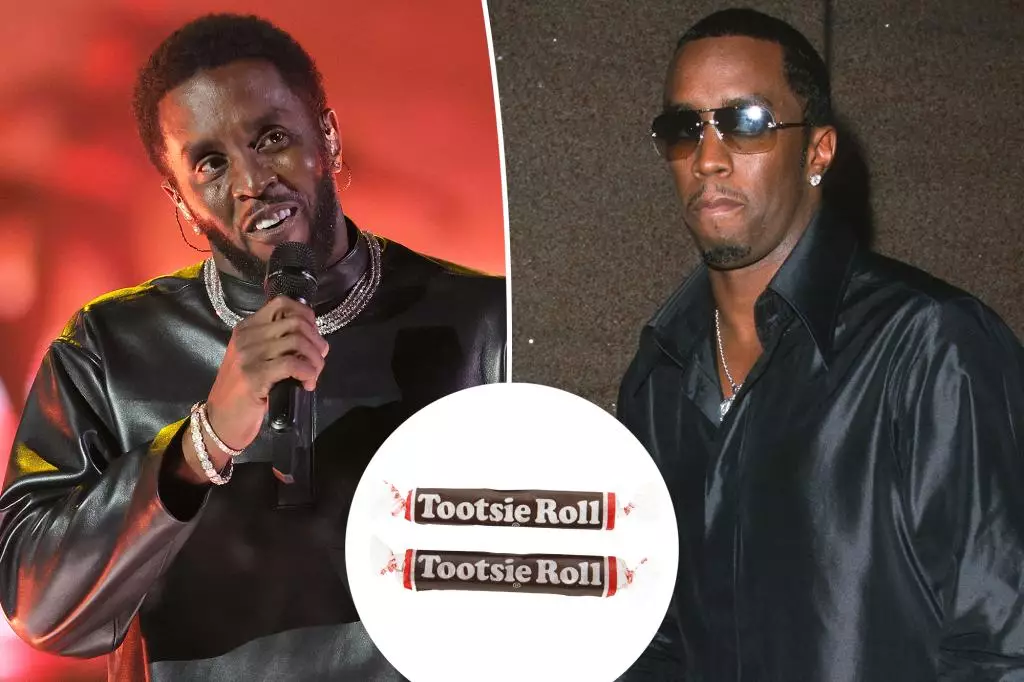The entertainment industry has long been a breeding ground for controversy, scandals, and stories that arouse public curiosity and outrage. Among these troubling narratives, one recent case involving Sean “Diddy” Combs has taken center stage, revealing not just the alleged actions of a prominent figure but also the complex layers of consent and power dynamics within celebrity culture. In a bombshell lawsuit, an unnamed woman—referred to as Jane Doe—has accused the music mogul of rape, shedding light on the profound issues of sexual misconduct that have plagued the industry for years.
According to court documents, Jane Doe met Combs in May 2001, and her relationship with him escalated from nightclubs to private settings that seemed initially benign. This gradual shift from public entertainment venues to the stark intimacy of Combs’ NYC recording studio illuminates a common pathway within such high-profile interactions, where boundaries can blur. What began as social encounters soon transitioned to an allegedly traumatic event that unfolded in July of that year, where Doe claims she felt trapped and powerless. Such scenarios highlight the chilling reality that often accompanies shifts in social dynamics—especially when navigating the celebrity landscape.
The Allegations and Their Implications
The details of Jane Doe’s allegations, as reported by various outlets, are troubling. She alleges that following an evening at a club, Combs took her to his home and forced her onto his bed, proclaiming dominance through physical intimidation. When power is exerted in such volatile ways, it raises a question that resonates beyond the celebrity realm: how can consent be clearly defined and respected when one person wields significantly more power and influence than the other?
Doe’s assertion that Combs allegedly made a verbal threat while assaulting her adds another layer of complexity to the narrative. With the music mogul’s explicit claim of intent, the emphasis on power through intimidation becomes increasingly apparent. Moreover, Doe’s description of Combs’ anatomy draws attention to societal fixation with physical attributes, reducing one of the most harrowing experiences a person can endure to a crude comparison. In doing so, Jane Doe brings forth an insight into how women navigate such traumatic experiences, infusing gallows humor in their narratives as a coping mechanism, though this should never overshadow the gravity of the situation.
Impact on Victims and Celebrity Culture
The lawsuit is not just an isolated incident; it feeds into the larger conversation about sexual violence and the chilling effects it has on individuals. For Jane Doe, the psychological aftermath allegedly included seeking psychotherapy—a testament to the long-lasting repercussions of trauma. Her experience reflects a broader trend where victims of sexual violence often struggle alone, haunted by the silence that the celebrity world can impose. When celebrities become embroiled in legal battles, the public scrutiny can detract from the victims’ narratives, overshadowing the real-life horror that unfolds behind the glitz and glamour.
Moreover, the constant discourse surrounding such accusations often ends up protecting the accused more than the victims. Even Combs’ representatives dismissed the lawsuit as baseless, echoing a sentiment that has permeated countless defenses against sexual misconduct allegations: the notion that lawsuits filed without naming the accuser should be met with skepticism. This systemic flaw fosters an environment where power dynamics can be exploited, perpetuating a cycle of abuse all too familiar in Hollywood’s history.
The Need for Change
The allegations against Combs call for an urgent reassessment of how we engage with celebrities and the narratives we construct around them. If celebrity culture continues to normalize problematic behavior and disregard the gravity of consent, victims will be left in a perpetual cycle of re-traumatization, with little hope of justice. Only through accountability, real dialogues about consent, and an unwavering commitment to supporting victims can we begin to dismantle the systems that allow such events to occur.
In grappling with this delicate balance of celebrity status and personal accountability, society must steer the conversation toward a more empathetic and informed dialogue, shining a light on the victims rather than the perpetrators. Ultimately, it’s crucial that we hold powerful individuals accountable for their actions, ensuring that the voices of those who suffer in silence are not silenced any longer.

